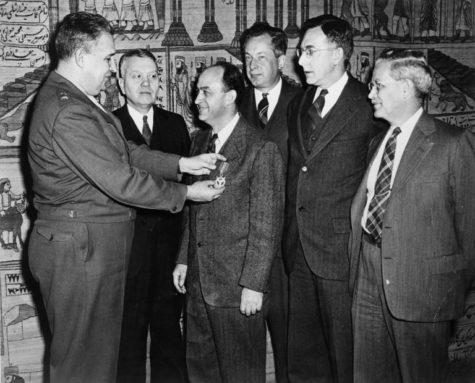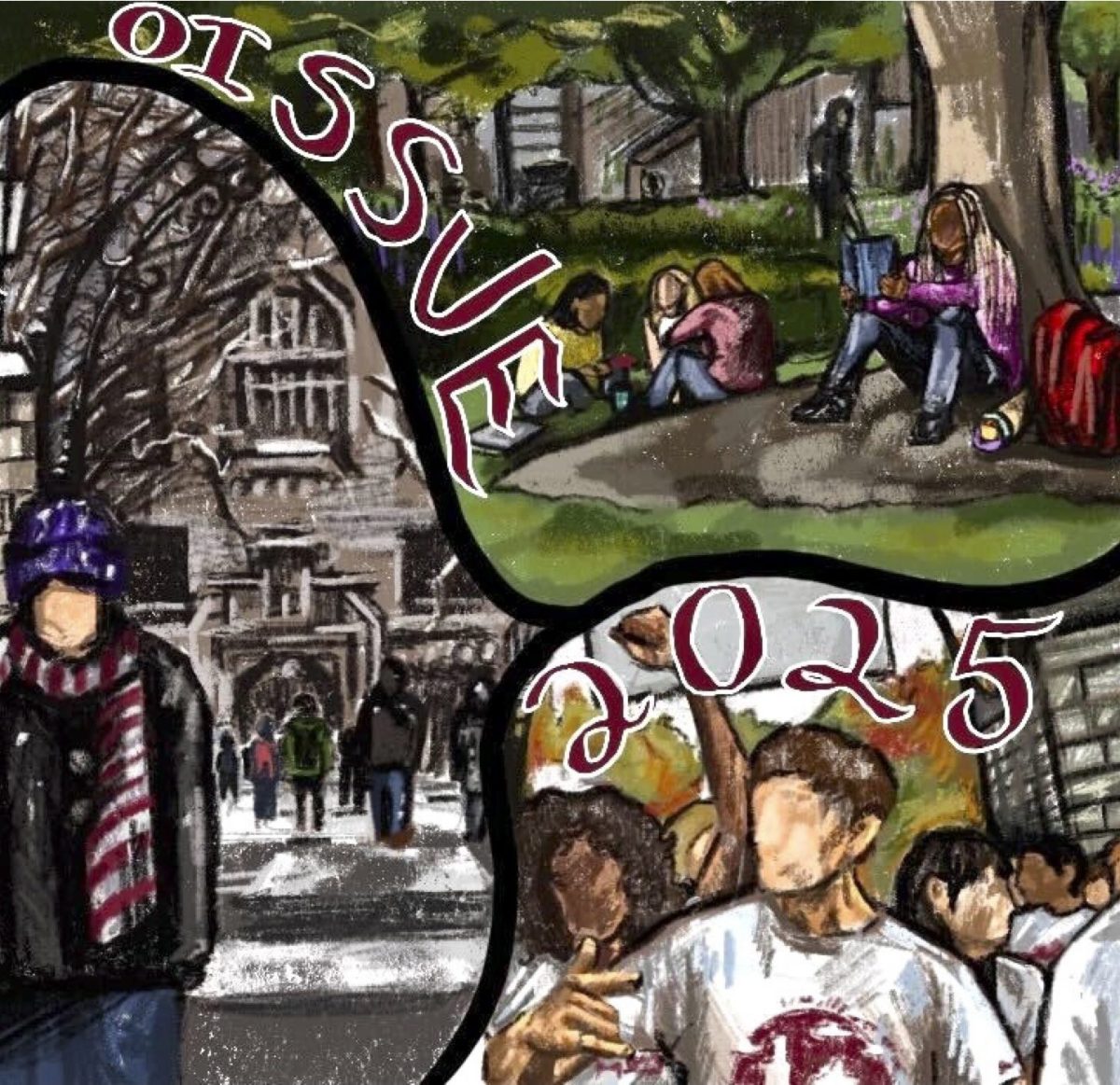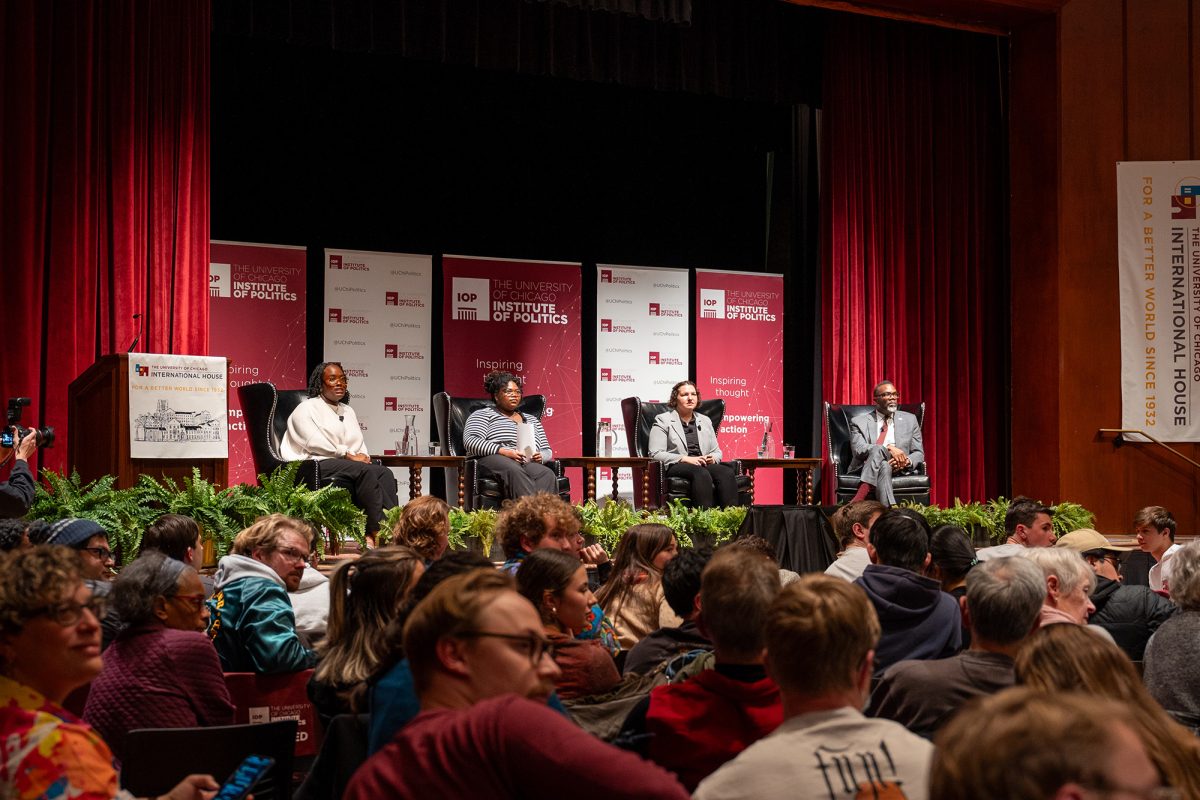Starting in autumn quarter 2025, the University will begin a multi-year restructuring of the undergraduate writing program, which had previously run concurrently with the humanities Core sequence.
Over the next three years, first-years and transfer students will transition in phases to take a new Core writing course called Inquiry, Conversation, Argument (ICA), with all incoming College students taking the course by the 2027–28 academic year.
Sophie McMillian-Myers, a current writing specialist, explained that the pilot program for the new Writing Center will be tested on incoming first-year and transfer students enrolled in Human Being and Citizen (HBC) for their humanities Core. Those students—approximately 20 percent of the incoming class—will be on the “Maroon Track” and will fulfill their writing requirement by taking ICA.
The students taking non-HBC Core sequences will be on the “Grey Track” and will fulfill their writing requirement through the former writing seminar curriculum. The HBC sequence will no longer include writing seminars or a writing specialist; the other humanities sequences will undergo no changes.
By the 2026–27 academic year, 50 percent of incoming students will be on the Maroon Track, taking ICA instead of the traditional writing seminar. To reach that share, a yet undetermined number of humanities sequences will transition out of the writing seminar model to make up the additional 30 percent of students set to be on the Maroon Track.
The rollout is scheduled to be complete by the 2027–28 academic year, at which point all incoming students will be on the Maroon Track, and the current Writing Program will be eliminated. The program will be replaced by the new Chicago Center for Writing, and the Center will be led by Abigail Reardon, the current executive director of the Writing Program.
In an email to the Maroon, Reardon explained the motivation behind the change.
“Multiple internal UChicago committees have reviewed the efficacy of the Writing Program over the past decade and found that improvements are needed to support students’ development as academic writers throughout their time at UChicago, including in upper-level coursework,” she wrote.
Reardon added that the Center will provide more “effective and sustained support” by implementing a comprehensive “multi-year writing curriculum.” She emphasized that the changes are intended to improve student preparedness for advanced coursework and professional pursuits, foster more effective instructional collaboration across the Core, and enhance consistency in writing instruction. Reardon also said that the Center would offer “a co-curricular support program for all Core sequences,” signaling plans to expand beyond humanities and social sciences sequences, the only courses supported by the current Writing Program.
Unlike the traditional writing seminars, ICA is a one-quarter course that students take for a quality grade. In an interview with the Maroon, Writing Specialist Elizabeth Fiedler shared that ICA will feature its own reading list revolving around a central question, designed by Reardon and ICA instructors.
Third-year transfer Ishaan Verma, who took a version of the ICA pilot this summer, alongside his Readings in World Literature humanities class, shared that his section asked students to consider the question “why tell stories of war?” through short readings on Canvas and two major writing projects: an analytic essay and a final research prospectus. Verma added that he thought ICA was an “effective” tool for easing the transition to university-level writing and introducing students to UChicago-specific expectations.
However, both Fiedler and Verma expressed concern about the compacted timeline of the course.
“I think two quarters would be ideal,” Fiedler said. “That would give students more of an opportunity to make mistakes and make revisions and revisit their work a bit more. The quarter system is already so compressed… and writing is a skill that just takes time to develop.”
This restructuring also has direct employment implications for current writing specialists, as ICA will be predominantly taught by instructional professors (IP).
Reardon explained that the new IPs are being “selected through a competitive national search and selection process” and “represent the best qualified and most effective writing instructors in the country.” The University began hiring during the 2024-25 academic year, and eight IPs have been hired to staff the upcoming pilot, Reardon said.
At the same time, the restructuring has also already led to layoffs. Seven writing specialists were laid off in July, with the remaining specialists expected to be let go in waves during the 2026 and 2027 spring quarters, according to Writing Specialist Sarah Osment. Osment estimated that 11 writing specialists applied to the new IP position, but only two were ultimately hired in spring.
In an email to the Maroon, Writing Specialist Sophie McMillian-Myers explained that only writing specialists with doctorates were eligible to apply for the IP roles, excluding several specialists with master’s degrees. She added that it remains unclear whether additional writing staff positions will be created before the 2026–27 academic year.
Despite these staffing changes, Reardon emphasized the Center’s broader goal.
“Learning to write is not just about academic preparation, but it is also a valuable approach to lifelong learning and discovery,” Reardon said. “The Chicago Center for Writing will support students in this endeavor, which is something we’re really excited about at the College.”
Editor’s note, 9:54 a.m. Oct. 9: This article previously linked to an ICA syllabus that included sensitive information. It has been updated with a new link to a redacted version of the syllabus and clarification regarding the source that provided it to the Maroon.





















AB / Sep 27, 2025 at 11:14 pm
My writing seminar instructor was one of the most profound influences on my early college career. Not all students enter college on the same playing field; some, like myself, having never written an argumentative essay before. My tutor was exceptionally qualified, truly kind, and genuinely committed to my success as a writer. All I’ll say is that I sincerely hope the College is evaluating its options with students’ and faculty’s needs first, and business priorities second. The ICA program, if executed well, seems like one I would have loved to partake in. I also hope this is not merely a performative effort to preserve the ideals of UChicago’s educational integrity, but a sincere attempt to keep pace with changing trends and honor what so many of us come here seeking with such earnestness.
B A / Sep 25, 2025 at 6:33 am
So this must be one of the centers the university is closing to help cut $100 million from its budget. And yet it is opening a replacement center that will probably be more expensive. When I was in the College, decades ago, we had access to writing tutors who were College juniors or seniors, or maybe grad students. I recall meeting with tutors once or twice toward the beginning of my freshman year. I like to think I write pretty well. Now the tutors need PhDs?
JJ / Sep 25, 2025 at 5:56 pm
Nostalgic anecdotes about “meeting with tutors once or twice” do not constitute an argument for preserving a payroll of marginally effective specialists.
The new program’s use of competitively hired instructional professors is, in fact, an attempt to impose standards where the previous system plainly failed. What has been mistaken for a hallowed tradition is essentially a welfare program for under-prepared students and under-employed writing tutors, perpetuated under the banner of “support.”
The real absurdity lies in expecting a research university to subsidize jobs for tutors who cannot clear a national search while simultaneously paying them to remediate skills that high-school graduates should already have mastered.
HM / Nov 23, 2025 at 7:22 pm
What an unnecessarily hostile and uninformed screed. “Plainly failed”= how do you measure this, or what measurements of others are you referencing?
Your comment has what we would call warrant issues. It’s not persuasive. Using evidence and sound logic is something the writing program taught— and if you’ve met people with PhDs, you’ll know teaching is not a skill required to get the doctorate.